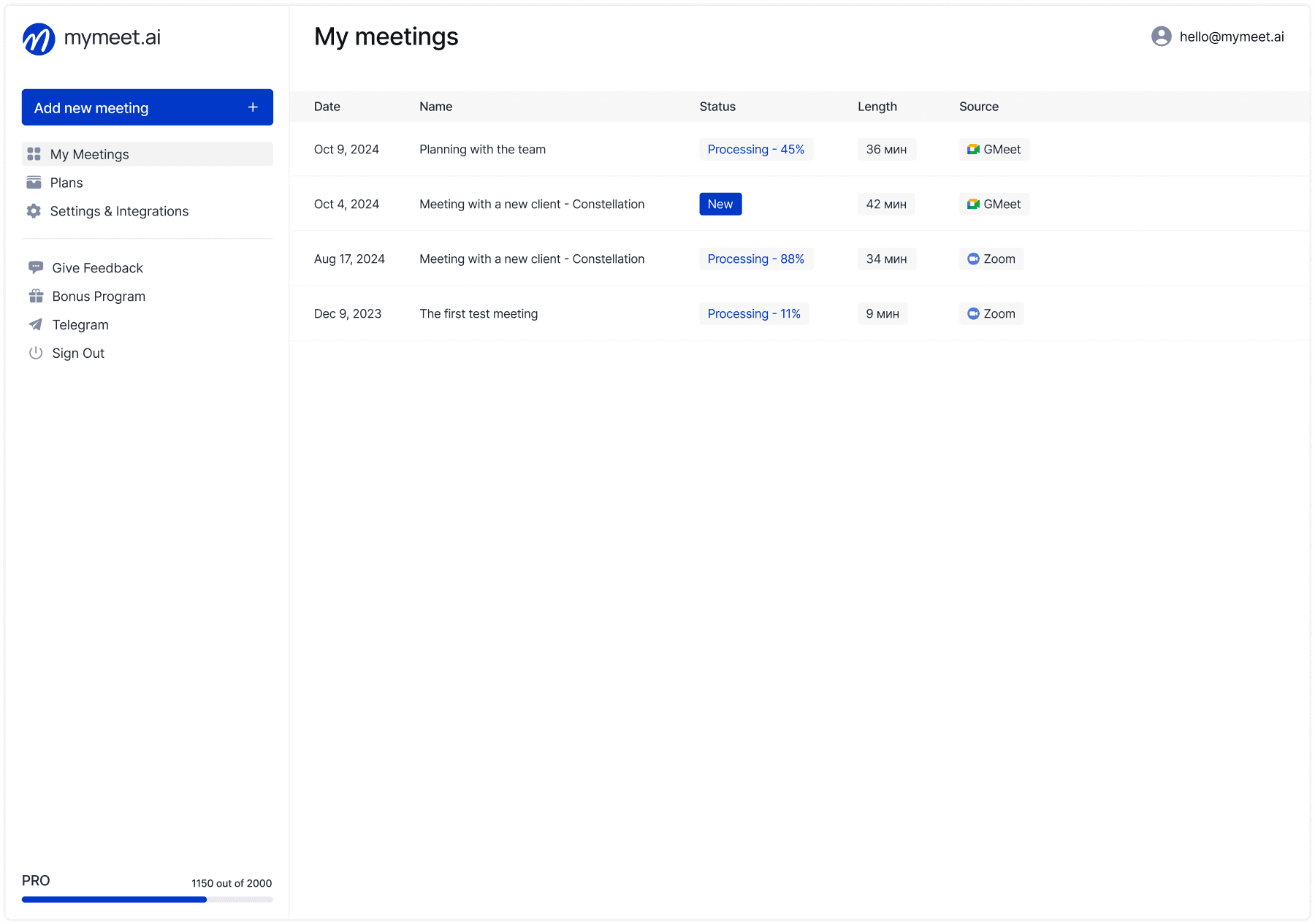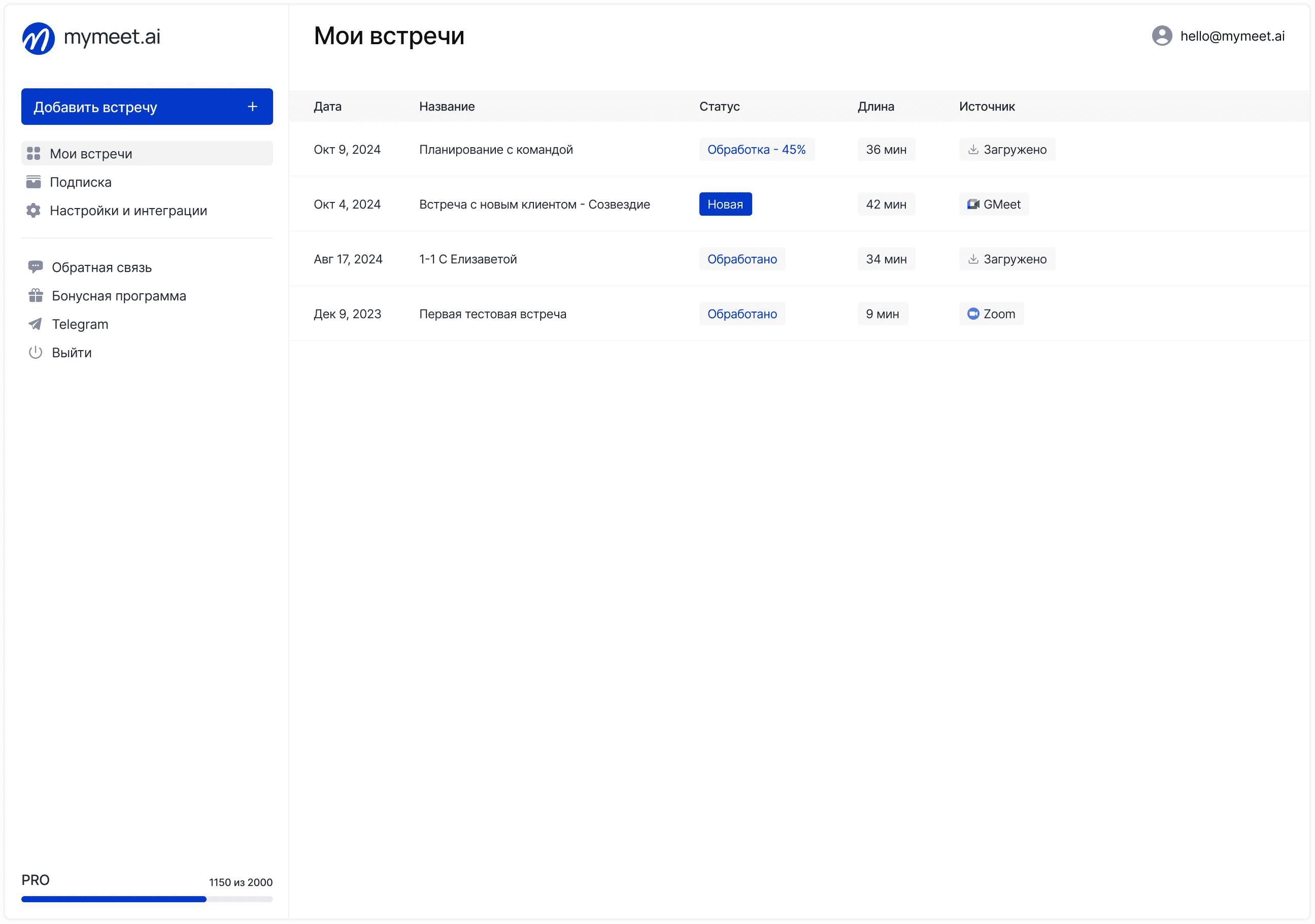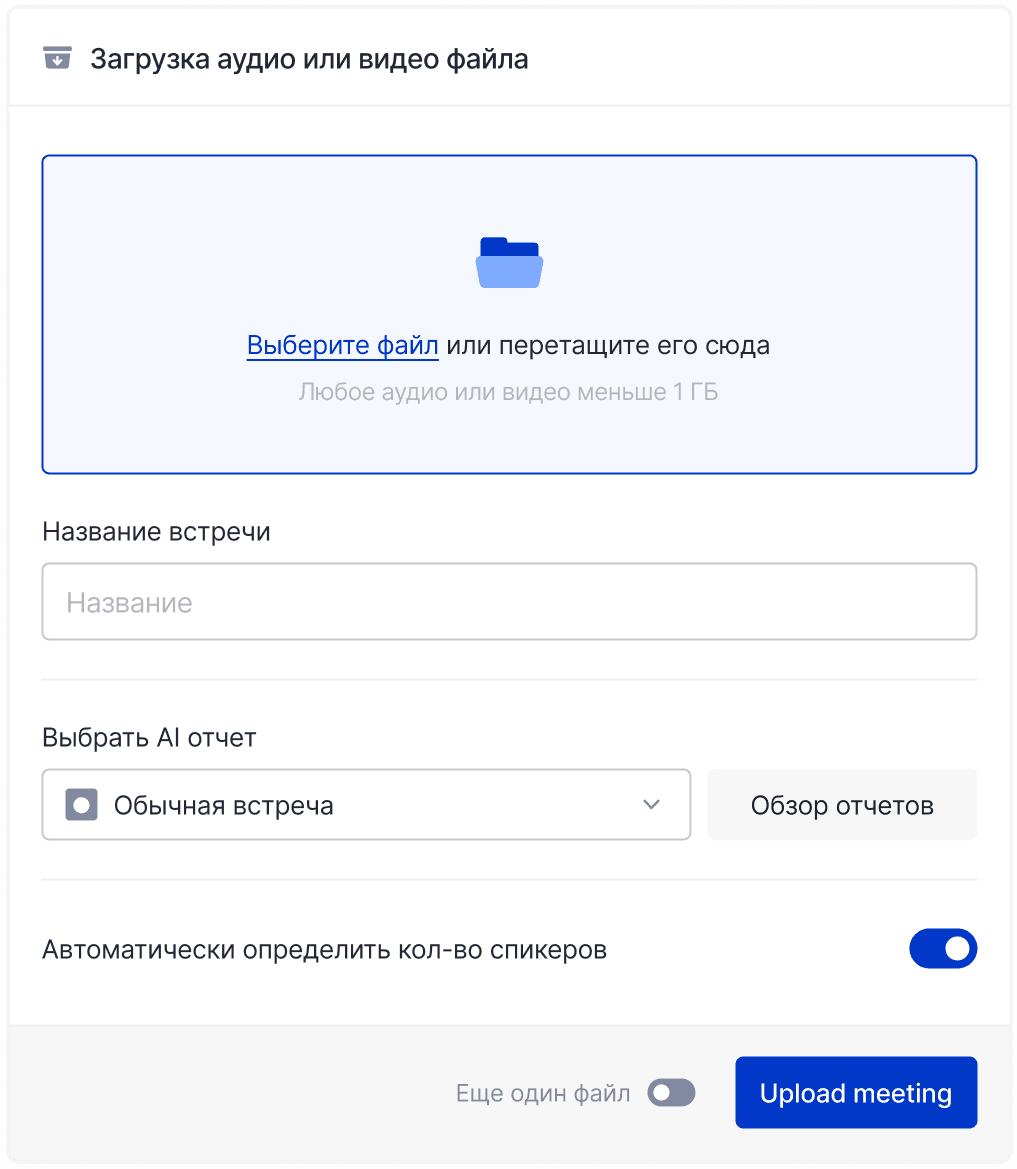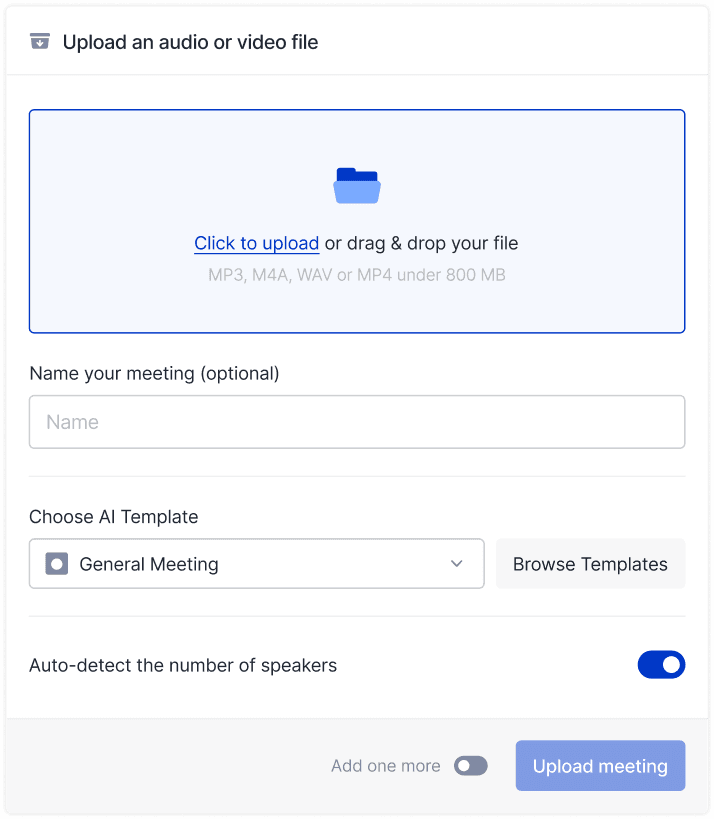Technology & AI

Radzivon Alkhovik
Jul 11, 2025
An IT director at a large manufacturing company faced a dilemma: commission custom corporate system development for $100,000 or try ready-made solutions. Choosing the second path, he implemented CRM, meeting automation system, inventory management, and analytics platform in 3 months. The result exceeded expectations: team efficiency grew by 40%, order processing time was cut in half, and total costs were only $35,000.
The ready-made business solutions market is experiencing explosive growth. Companies are abandoning expensive custom development in favor of proven products that can be implemented in weeks, not months. Digital transformation becomes accessible for businesses of any size — from startups to large corporations.
What Are Ready-Made Business Solutions for Automation

Ready-made business solutions are complete software products created for automating typical corporate processes. These systems are developed considering best industry practices and the needs of a wide range of companies.
Definition of Ready-Made Business Solutions
Ready-made business solutions are distinguished by functional completeness and readiness for immediate use. Developers invest years in product creation, testing on numerous clients, and algorithm improvement.
Key characteristics of ready-made business solutions:
Modular architecture with ability to activate only needed functions
Cloud technologies for rapid deployment without server investments
API integrations for connecting with existing corporate systems
Automatic updates with new features and fixes
Continuous development based on user feedback
Ready-made products constantly evolve thanks to user feedback and emerging new technologies. Companies gain access to modern capabilities without the need for in-house development.
Differences from Custom Software Development
Custom development requires creating unique software from scratch for one company's specific requirements. The process includes requirements analysis, architecture design, programming, testing, and support. Implementation timelines are measured in months or years, and costs often exceed initial plans.
Ready-made business solutions offer an alternative approach: using proven products with the possibility of customization for corporate processes. Implementation takes weeks, costs are predictable, and risks are minimal thanks to numerous successful implementations.
Types of Business Solutions for Company Automation
The modern market offers ready-made business solutions for all aspects of business operations — from specialized products to comprehensive platforms.
CRM Systems for Customer Management

Customer relationship management systems automate the entire sales cycle — from first contact to deal closure. CRMs combine call planning, deal tracking, manager efficiency analysis, and integration with communication channels for complete customer interaction history.
ERP Enterprise Resource Planning Systems

Enterprise resource planning systems integrate finance management, procurement, production, and warehousing in a unified platform. Modular architecture allows starting with basic functionality and adding new capabilities as the business grows.
Electronic Document Management Systems

Electronic document flow transforms document work from creation to archiving. Systems ensure controlled movement through approval routes with electronic signatures and compliance with data protection requirements.
Criteria for Choosing Business Solutions for Companies
Selecting the right ready-made business solution requires systematic analysis of company needs, technical capabilities, and economic factors. Proper criteria evaluation at the selection stage prevents costly mistakes and ensures successful implementation.
Criterion | Importance Weight | Key Questions | Evaluation Methods |
Functionality | 30% | Does it cover all business processes? | Demo versions, pilot projects |
Integrations | 25% | Compatible with current systems? | Technical testing |
Total Cost of Ownership | 20% | TCO for 3-5 years? Hidden costs? | Financial modeling |
Support | 15% | Quality of technical support? | Client reviews, SLA |
Security | 10% | Data protection compliance? | Security audit |
Business Automation Needs Analysis
Deep understanding of current business processes forms the foundation for solution selection. Companies should document which tasks are solved manually, where delays occur, and which processes require automation first.
Functionality prioritization helps focus on truly important capabilities. Business growth planning should be considered when choosing a solution — the system should scale with the company.
Technical Software Requirements Assessment
Compatibility with existing IT infrastructure determines implementation complexity and cost. Ready-made business solutions should integrate with used accounting systems, CRMs, and warehouse programs without radical process restructuring.
Performance requirements depend on user numbers and processed data volumes. Mobile access has become a mandatory requirement for modern corporate systems.
Advantages of Ready-Made Business Solutions Over Development
Ready-made business solutions offer several significant advantages that make them the preferred choice for most business tasks. Companies get proven solutions without the risks and time costs of developing from scratch.
Key advantages of ready-made business solutions:
Rapid implementation in weeks instead of months of development
Predictable cost without budget overrun risks
Proven functionality on thousands of clients
Regular updates and new capabilities
Professional technical support from developers
Reduced load on internal IT resources
Fast Implementation and Time-to-Market
Ready-made business solutions ensure quick automation of business processes. Instead of months of development, companies get a working system in weeks. Cloud products can be configured and launched within days of deciding on implementation.
The absence of a development stage eliminates risks associated with technical problems and deadline overruns. Parallel implementation of several ready-made solutions allows comprehensive automation of various company activities.
Economic Efficiency of Business Solutions
Ready-made business solution costs are significantly lower than custom development due to product creation cost distribution among multiple clients. Cost predictability is ensured by fixed subscription rates.
Reduced IT personnel requirements allows companies to focus internal resources on strategic projects. Ready-made solution support is provided by the vendor, freeing corporate IT teams from routine tasks.
Business Solutions by Economic Sectors
Different economic sectors have specific requirements for business process automation. Ready-made solution manufacturers create industry versions of their products, considering regulatory features and operational processes.
Manufacturing and Logistics

Manufacturing companies focus on production planning, supply chain management, and quality control. Manufacturing ERPs include production capacity management and material requirements planning modules.
Integration with industrial equipment allows collecting productivity data in real-time. Logistics solutions optimize delivery routes and manage warehouse inventory.
Trade and Retail

Trading companies need solutions for inventory management, sales analysis, and customer experience personalization. Omnichannel platforms unite online and offline sales channels in a unified system.
Main retail functions:
Loyalty systems with POS terminal and online store integration
Customer behavior analytics for assortment optimization
Dynamic pricing based on demand and competitive environment
Supplier management and procurement automation
Demand forecasting and inventory planning
Pricing solutions automatically adjust product costs based on multiple factors. Dynamic pricing increases profitability and competitiveness of trading companies.
IT and Services

IT companies and service providers use project management systems, time tracking, and client billing. Agile tools support modern software development methodologies.
Knowledge management systems help structure team expertise and provide quick access to technical solutions. Remote work solutions are especially relevant for the IT industry.
mymeet.ai as an Example of Effective Ready-Made Solution

The mymeet.ai platform demonstrates the advantages of modern ready-made solutions for corporate process automation. The system solves real business problems and offers a comprehensive approach to working with meeting and negotiation information.

Key mymeet.ai advantages for companies:
✅ Meeting documentation automation — system independently creates structured reports, saving up to 80% of time on meeting documentation

✅ 11 specialized AI reports — from sales presentations to HR interviews, each meeting type gets optimal processing with relevant insights
✅ High-precision transcription in 73 languages — perfect processing with understanding of complex terminology and industry specifics
✅ Seamless integrations with popular platforms — Zoom, Google Meet, Microsoft Teams, and CRM systems work without additional setup
✅ Telegram bot with full functionality — instant access to all capabilities directly from corporate messenger
✅ Robust data protection — compliance with data protection regulations and full localization guarantee confidential information security

✅ Expert support — technical team with understanding of business realities and corporate culture
✅ Free testing minutes — opportunity to evaluate all functions without card binding and financial obligations
Implementation speed impresses with efficiency — companies can start using all platform capabilities within one business day. An hour-long meeting transforms into a detailed structured report in just 5 minutes of processing.
Economic effect manifests in several directions. Executives free up several hours weekly thanks to automation of routine protocol creation work. Improved quality of decision and task recording accelerates project implementation and reduces repeated discussions.
Train employees to work with the AI assistant. Submit an application via the form for a corporate webinar.

Implementing Ready-Made Business Solutions in Companies
Successful ready-made solution implementation requires a structured approach and coordination between various project participants. Companies that follow proven implementation methodologies achieve better results in shorter time frames.
Planning and Implementation Preparation Stages
Change readiness analysis forms the foundation of a successful project. Teams should assess technical infrastructure, personnel skills, and company organizational culture. Identifying potential obstacles at an early stage helps develop a plan to overcome them.
Main implementation planning stages:
Current business process audit and automation point identification
Project team formation with clear role distribution
Detailed plan creation with checkpoints and timeframes
Budget planning considering all expense categories
Communication strategy development and change management
Technical infrastructure preparation for integration
Project team composition affects implementation speed and quality. Creating a detailed project plan with checkpoints ensures control over implementation progress.
Pilot Testing of Business Solutions
Pilot group selection determines feedback quality and changes readiness. Optimal pilot participants combine subject matter expertise with openness to new technologies.
Limited functionality testing allows focusing on critically important processes. Pilot project results measurement includes quantitative metrics and qualitative user satisfaction assessments.
Scaling to the Entire Company
Gradual expansion to other departments is based on pilot group experience. First stage lessons help optimize training processes and prevent typical problems.
Personnel training adapts to specific employee roles and tasks. System usage monitoring helps identify adaptation problems and areas for additional training.
Evaluating Business Solution Effectiveness
Systematic measurement of ready-made business solution implementation results allows companies to assess investment success and identify opportunities for further process improvement.
KPIs and Implementation Success Metrics
Operational efficiency indicators should reflect achievement of initial project goals. Companies track employee time savings, business process error reduction, and decision-making acceleration.
Key metrics for measuring success:
Employee time savings on routine task execution
Business process error reduction
Information processing and decision-making acceleration
Reporting and analytics quality improvement
Inter-departmental interaction improvement
Employee work satisfaction growth
Free time can be directed toward strategic tasks or new business direction development. Qualitative changes are often more important than quantitative indicators.
ROI and Investment Payback Calculation
Economic effect from implementation includes employee time savings, operational cost reduction, process quality improvement, and revenue growth. Most ready-made business solutions have an ROI of 200-400% within the first year of use.
Comparing automation costs with manual work shows direct operational cost savings. Sales and conversion impact manifests through improved manager work quality and faster customer need identification.
Mistakes in Choosing Business Solutions
Understanding typical mistakes helps companies avoid costly miscalculations when selecting and implementing ready-made business solutions.
Underestimating System Integration Complexity
Many companies underestimate the complexity of integrating new solutions with existing corporate systems. Lack of ready connectors increases project cost, while incorrect performance requirement assessment leads to problems with load growth.
Incorrect Implementation Budget Planning
Companies often consider only license costs, forgetting expenses for integration, personnel training, and technical support. Hidden costs can exceed the initial budget by 2-3 times, while lack of contingency reserves leads to project freezing halfway.
Ignoring User Needs
Choosing solutions without end-user participation often leads to implementation sabotage. Insufficient personnel training reduces new tool efficiency, while quality team preparation ensures quick adaptation.
Conclusion
Ready-made business solutions fundamentally change the approach to digital transformation in companies. Companies that first mastered ready-made product advantages already gain competitive advantages through routine process automation.
The ready-made business solutions market has reached maturity and offers quality products with data protection compliance and support. Investments in correctly chosen solutions pay back in 6-12 months and continue bringing benefits for years.
Start digital transformation today: test mymeet.ai for free and evaluate ready-made solution advantages in practice. Free testing without card binding helps understand how modern technologies can transform your team's work.
FAQ
What's better to choose: ready-made solution or development from scratch?
Ready-made solutions are preferable for 90% of business tasks. They provide fast implementation, predictable cost, and proven functionality. Development from scratch is justified only for unique processes that cannot be automated with ready-made products.
How long does ready-made business solution implementation take?
Cloud ready-made solutions can be implemented in 1-4 weeks depending on integration complexity. Simple systems like CRM or meeting automation launch in several days. Complex ERP solutions require 1-3 months for full implementation.
What ready-made solutions does small business need first?
Priority solutions for small business: CRM for customer management, meeting automation system, cloud accounting, and team collaboration tools. Start with solutions that provide quick and clear results.
How to evaluate ROI from ready-made corporate solutions?
ROI is calculated through employee time savings, operational cost reduction, and revenue growth. Typical ready-made solution payback is 6-12 months with 200-400% ROI in the first year. Consider not only direct savings but also qualitative process improvements.
Are cloud ready-made solutions safe for business?
Quality cloud solutions provide high security through data encryption, regular audits, and standard compliance. For companies, it's important to choose solutions with data localization and protection regulation compliance.
Can ready-made solutions integrate with existing systems?
Modern ready-made solutions offer APIs and ready integrations with popular corporate systems. Most cloud products easily integrate with CRMs, accounting systems, video conferencing platforms, and messengers.
What to do if a ready-made solution doesn't fully fit?
Most ready-made solutions offer flexible settings for business specifics. If basic functionality doesn't cover all needs, you can use APIs for customizations or combine several specialized solutions.
How to choose a ready-made business solution provider?
Evaluate provider reputation, technical support quality, localization availability, and client reviews. Always test the solution on real tasks before making a final purchase decision.
Are specialists needed for ready-made solution implementation?
Simple cloud solutions can be implemented by regular staff. For complex systems, it's recommended to involve provider consultants or system integrators. Investments in quality implementation pay back through quick team adaptation.
What ready-made business solution development trends are relevant now?
Main trends: artificial intelligence integration, mobility and remote work, no-code platforms for business users, enhanced security and regulation compliance. AI becomes a standard feature of ready-made solutions.
Radzivon Alkhovik
Jul 11, 2025








